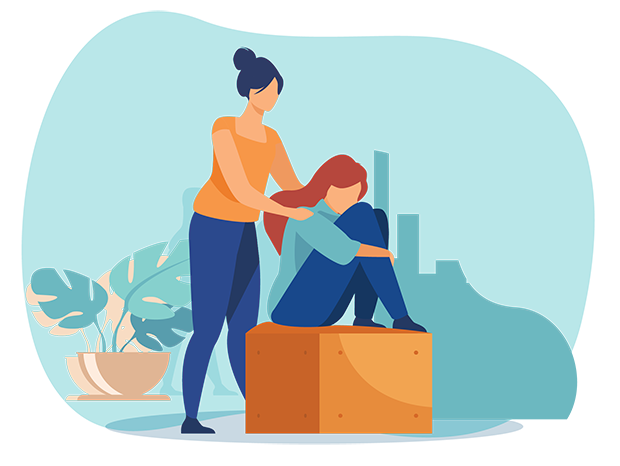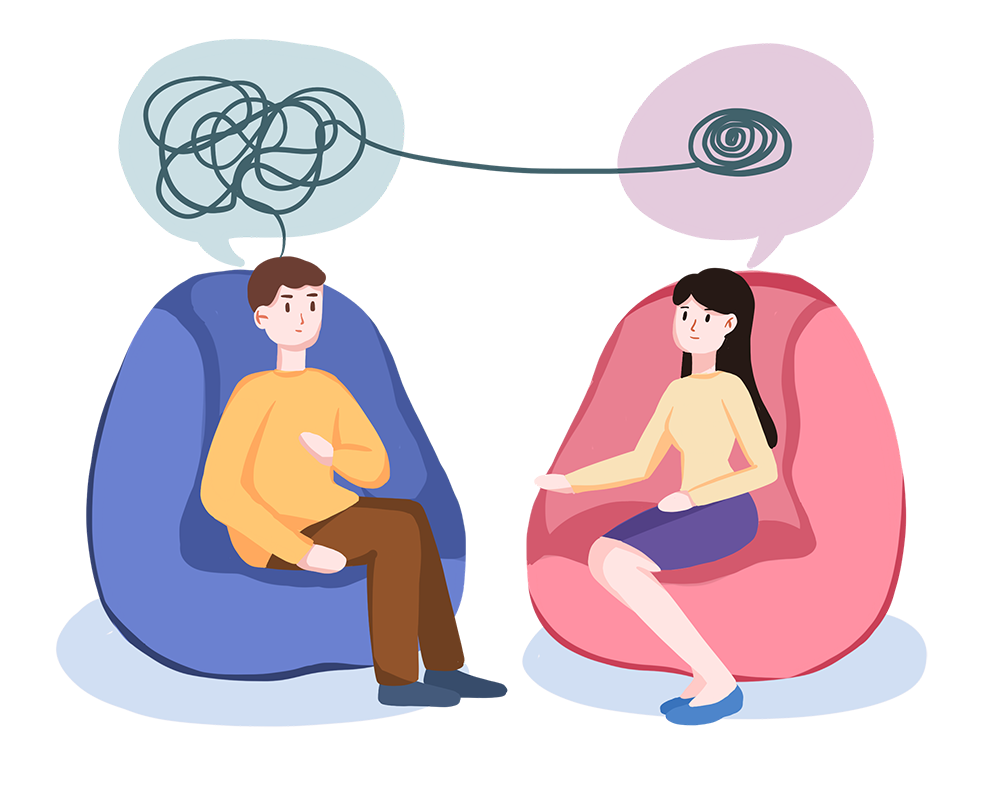Atlanta Integrative Psychiatry provides comprehensive panic disorder treatment & therapy, including complex cases. Our caring and supportive team works with our clients to develop personalized treatment and care plans to fit their specific and unique needs. Don’t let panic disorder control your life by learning how to manage this condition for a more fulfilling life.

Panic disorder is a type of anxiety disorder that features recurrent and unexpected panic attacks. The panic attacks occur suddenly with intense fear or panic that will peak within a few minutes. It is usually accompanied by a variety of different physical symptoms.
Individuals with panic disorder often live in fear of having a panic attack at the most inopportune time or location. Therefore, they will also usually avoid places, situations, and social activities when they believe an attack could occur.
The signs and symptoms of panic disorders include:
In addition to these signs and symptoms, some people may experience an overwhelming sense of dread and anxiety right before having a panic attack that can also continue during the attack.
At Atlanta Integrative Psychiatry, we offer personalized panic disorder treatment & therapy customized to each individual’s needs. The intensity and duration of treatment will vary based on the severity and frequency of the attacks. The types of therapy we use to treat panic disorder in Atlanta are:

Determining whether you need panic disorder treatment & therapy will depend on the extent and severity of the symptoms you are experiencing. If your symptoms are significantly interfering with your daily routines and life, treatment and therapy are highly recommended. Other signs you could benefit from panic disorder treatment and therapy include:

This type of panic attack occurs without a specific trigger and can happen at any time. They can be intense and often peak rapidly while causing overwhelming fear and discomfort.
This type of panic attack is also called a situational panic attack. It occurs when exposed to something triggering, such as a fear of crowds or a fear of heights.
This type of panic attack occurs when our brain believes we are in danger. It is related to our natural flight or fight response. For people having this type of panic attack, it is more intense than a normal flight or fight response. Their heart can be racing, they can have shortness of breath, experience chest pain, and believe they are having a heart attack.
This type of panic attack occurs while sleeping. It wakes the person up from sleep. People experiencing nocturnal panic attacks can become afraid to sleep, sleep deprived, and more prone to panic attacks when they sleep from a lack of sleep.
Various types of mental health medications have been approved by the FDA for panic disorder treatment, including:
Are you ready to take the first step toward gaining control over your panic disorder and reclaiming control? Start your journey toward healing and recovery at Atlanta Integrative Psychiatry. Our caring and compassionate team offers comprehensive and personalized treatment plans tailored to your unique needs. Contact us today to start your path to a brighter tomorrow with improved mental health and well-being.
Atlanta Integrative Psychiatry is an Industry leader in mental health treatment . Our team of top medical experts specialize in dual diagnosis treat and are committed to ensuring that each patient is treated as an individual.
Call us today, we're avialable 24/7.
Get Help Now
Request a Confidential Callback Today!